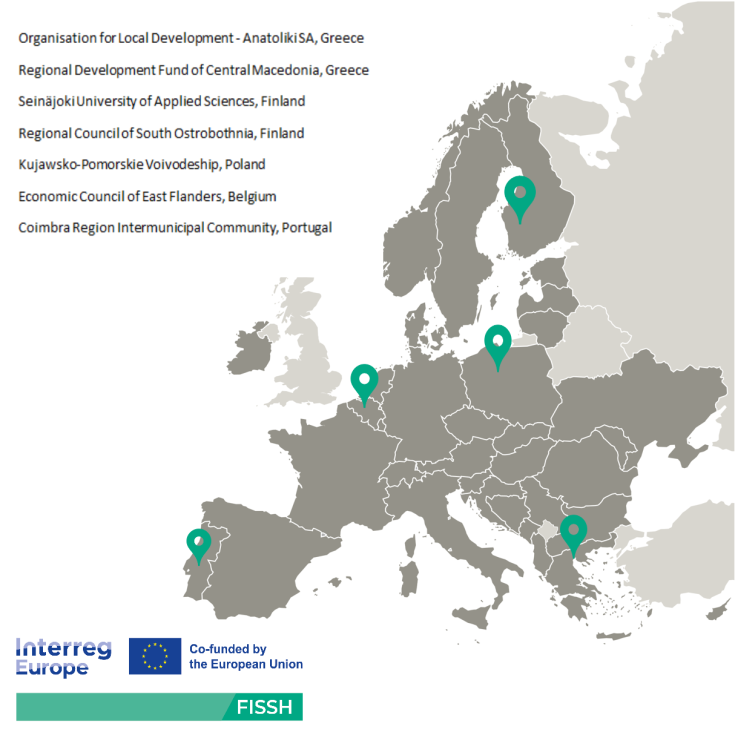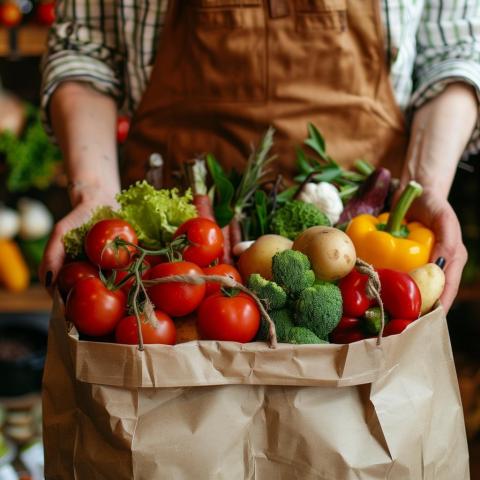Project summary
The food industry and agriculture are essential drivers of job creation and economic growth in European regions. They also play a key role in the EU's ambitious goal of achieving carbon neutrality by 2050, supported by landmark initiatives like the EU Green Deal and the Farm to Fork Strategy. The recent global crisis has underscored the critical importance of resilient and secure food supply chains for the well-being of European citizens.
A Need for Sustainable Food Systems
At the heart of future food systems is the concept of sustainable development, which must be addressed at every stage of the food production process. Small and medium-sized enterprises (SMEs) dominate the food sector in many regions, yet these businesses often lack the resources, expertise, and tools to tackle the challenges associated with sustainability.
FISSH Project: Supporting SMEs on the Path to Sustainability
This is where the FISSH project—Food Industry SMEs’ Sustainability Support and Help—comes into play. The project's primary mission is to assist food businesses in five partner regions in improving their sustainability practices through knowledge exchange and the sharing of best practices.
FISSH focuses on key areas such as developing sustainable business models, enhancing the sustainability of production processes and product value chains, and gaining insight into consumer perspectives on sustainable food choices.
A Diverse Group of Partners
The FISSH project brings together seven core partners and one associated policy authority from across Europe. These partners represent a wide range of expertise and perspectives:
- Organization for Local Development ANATOLIKI S.A. (Greece),
- Regional Development Fund of Central Macedonia (Greece),
- Seinäjoki University of Applied Sciences (Finland),
- Regional Council of South Ostrobothnia (Finland),
- Kujawsko-Pomorskie Voivodeship (Poland),
- Economic Council of East Flanders (Belgium),
- Coimbra Region Intermunicipal Community (Portugal).


First video of the FISSH project
Watch now to see how we’re driving change and shaping a sustainable future for the food industry!
This video highlights the main objectives of the FISSH project, aimed at empowering small and SMEs in the food sector to embrace sustainable growth.
What will this project change
Expected Outcomes and Impact
The FISSH project aims to deliver significant results. Over its course, the project will identify 15 good practices that can be shared across regions and sectors. Additionally, it seeks to influence five regional policies by initiating new development projects or revising existing policies. Another key goal is to foster collaboration between 52 organizations through nine interregional policy learning events.
By focusing on knowledge exchange and practical support for food SMEs, the FISSH project is set to make a meaningful contribution to the transition towards a more sustainable food industry in Europe.
